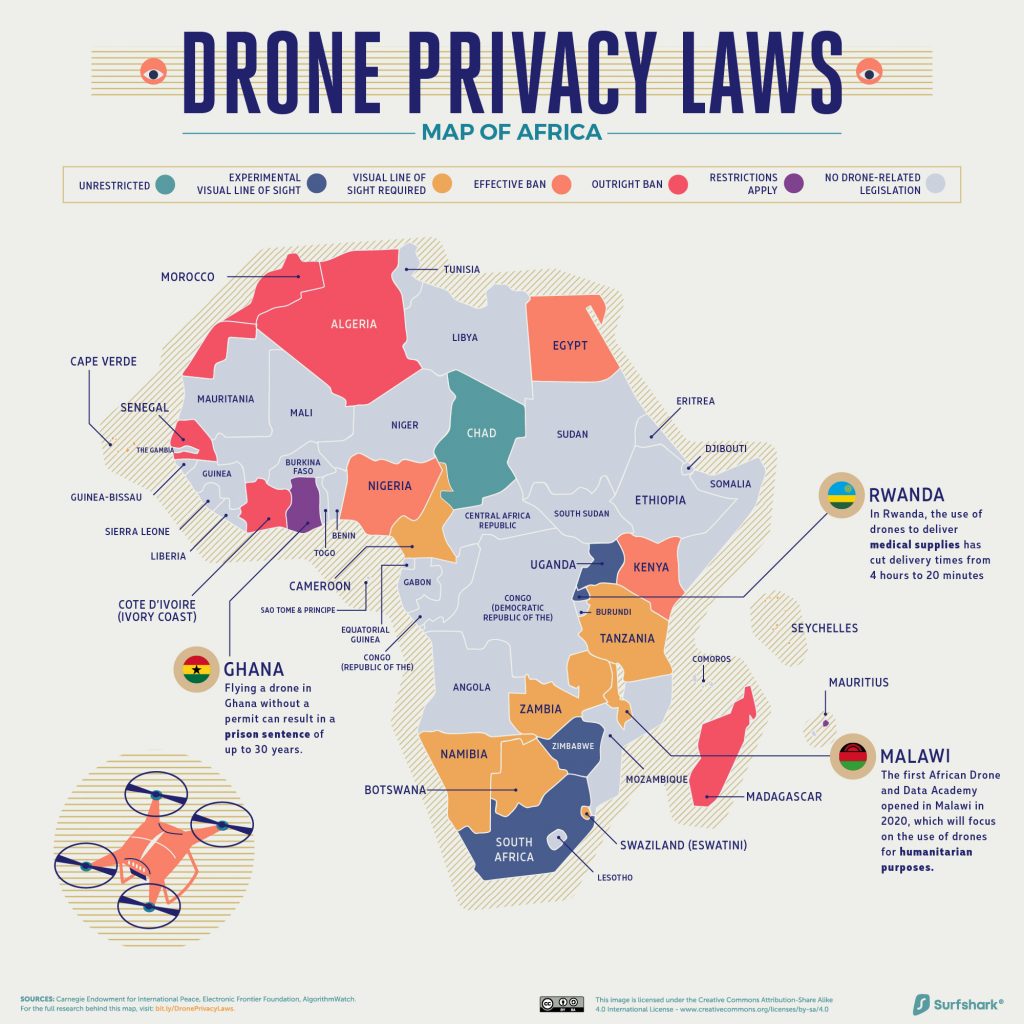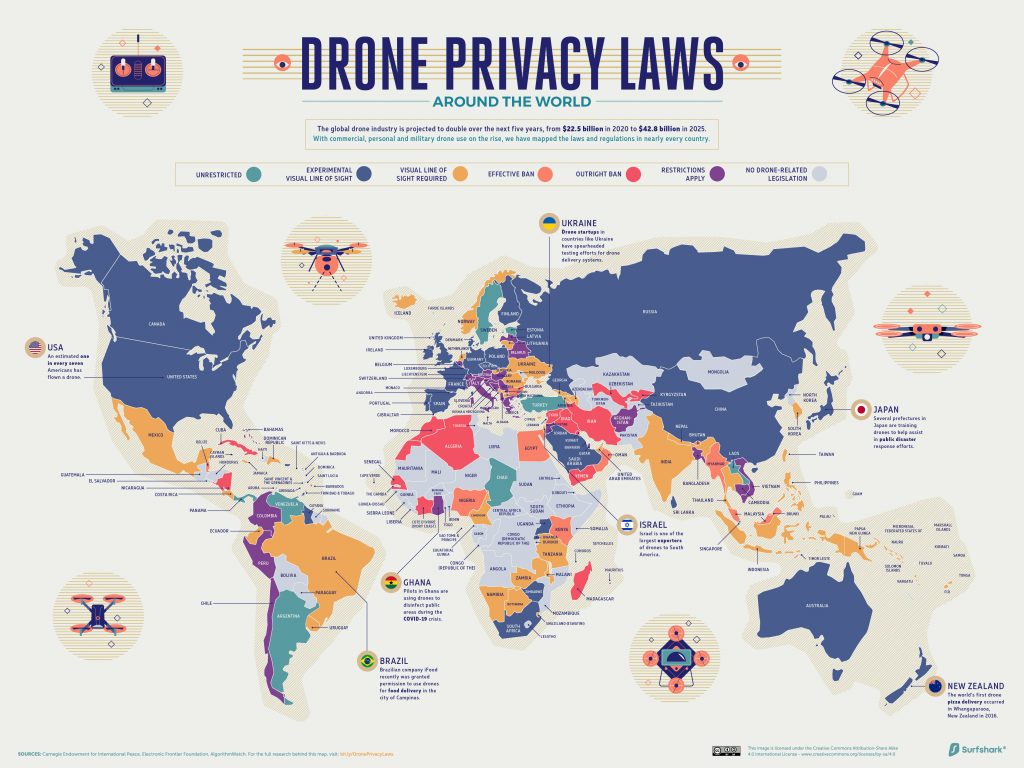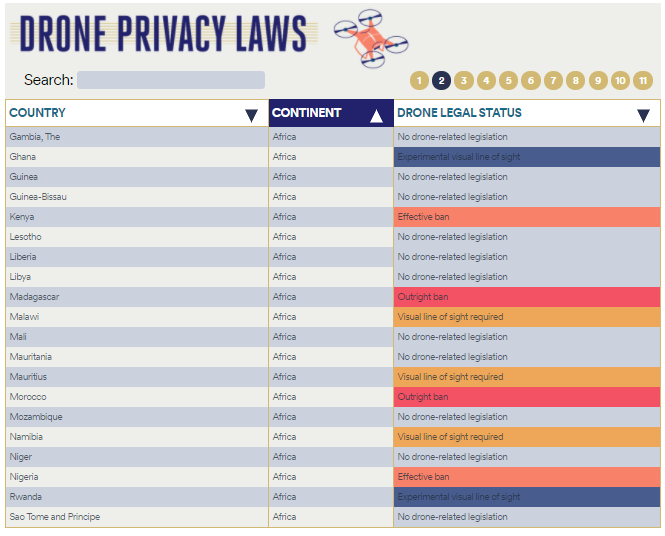Over the past year, the mainstream use of drones has been on the increase in Africa. From startups like Lifeblood which uses drones to deliver blood to Zipline which uses it for logistics, more and more people and businesses are adopting drone use.
With the price of drones dropping, its popularity in Africa is set to spike in as the barrier of affordability shrinks. Drones now cost as low as 12,000 naira
The number of patents for drone technology grew 34% from 7,076 in 2017 to 9,485 in 2018 – World Intellectual Property Organisation


However, as the commercial application of unmanned aerial vehicles continues to advance, risks such as the invasion of privacy comes to bear. This is because drones can be flown from 5km away whilst recording (and streaming) 4k footage.
A recent example was during the EndSARS protest where several drones were taking aerial shots and videos of the protest.
While this ability and function can be very useful like it was during the protest, it can also be used to spy and invade people’s privacy if no strict laws are put in place.
Related read: Global Air Drone Academy Gets $20,000 to Help Establish its Training and Research Centre in Lagos
Insufficient drone Regulation
Globally, at least 143 countries have established some form of drone-related regulation. However, many experts argue that current drone regulations are insufficient to deal with the threat of widespread surveillance.
Like Africa, drone use is expanding around the world. Drone startups in countries like Ukraine have spearheaded testing efforts for drone delivery systems.
Research by Surfshark shows that lawmakers around the world are responding to the growing use of drones in various ways. While some countries, such as Cuba, Iraq, Iran, and Kuwait, have outrightly banned the use of unmanned aircraft, others have passed legislation allowing for more experimental use of the technology.


However, the report claims most legislations focus on how the drone is being operated and doesn’t address nuances related to privacy.
The global drone industry is projected to double over the next five years, from $22.5 billion in 2020 to $42.8 billion in 2025.
Half of Africa have no Drone laws
Surfshark reported that more than half of the countries in Africa have no drone laws. It added that of the 24 countries that do have drone-related legislation, 21% have an outright ban on the technology, the largest share of any continent.
Drone flying is banned in 5 African Countries namely Cote d’Ivoire, Algeria, Madagascar, Morocco and Senegal
Another 13% of countries including Nigeria have an effective ban on the technology while the remaining 64% have laws allowing either full or Experimental visual line of sight to fly.


Related read: Lagos Government Unveils 5,000 Drones to Observe and Improve Safety of Waterways
Major highlights
Although Ghana gives permission for experimental visual line of sight flights, unauthorised use of drone in the country can come with harsh penalties. According to the report, flying a drone in Ghana without a permit can result in a prison sentence of up to 30 years.
Egypt on the other hand has laws that allow legal use of drones but the report pointed out that it is very difficult to obtain.
On the plus side, the report also highlighted countries like Malawi that have established Drone and Data Academies that focus on the use of drones for humanitarian purposes.
Similarly, countries like Rwanda and Ghana have also given permission for the use of drones to fly beyond the line of sight to deliver medical supplies. This has cut delivery time from 4 hours to 20 minutes. Other African countries that allow drones to fly beyond the line of sight include Uganda and Zimbabwe.
In summary, as innovation using drone continues to grow, it’s important to have regulations for them. This is because the increase in popularity of drones has raised the prospect of pervasive surveillance by governments, companies, and individuals.
With just 24 countries having drone laws in Africa, African lawmakers are struggling to keep up with the advancing technology and need to be proactive in order to aide innovation even while protecting privacy.






